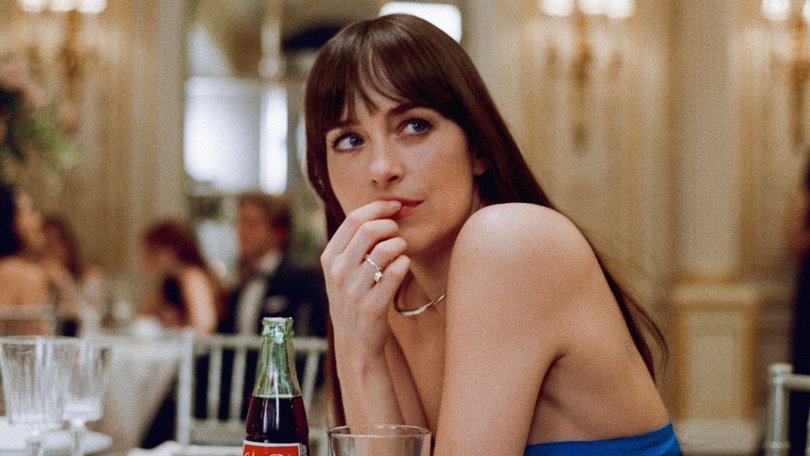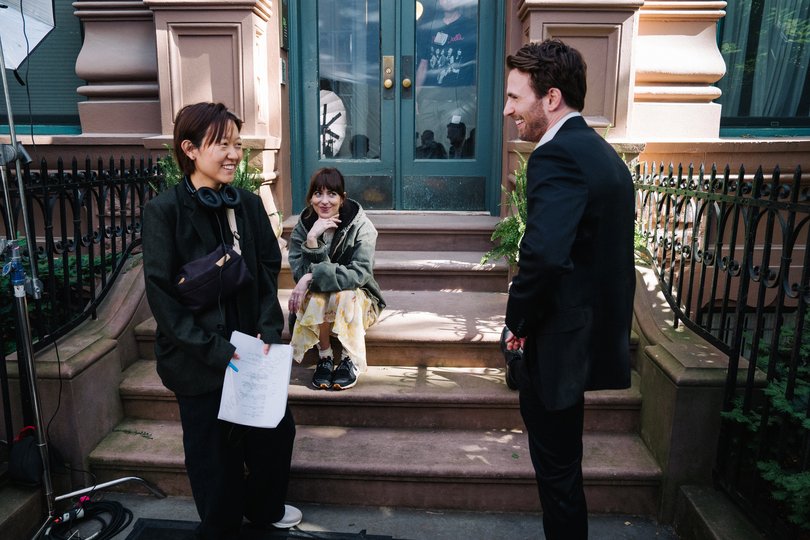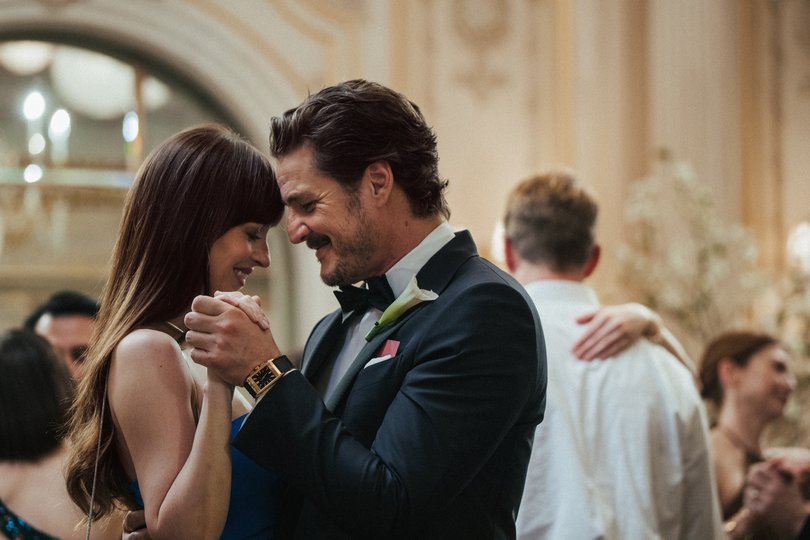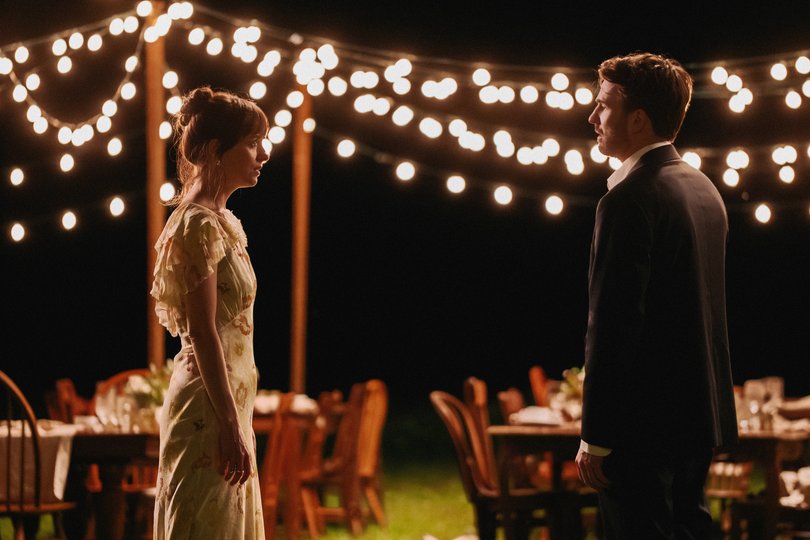Materialists director Celine Song on Jane Austen, marriage plots and love triangles
When it comes to romance and love triangles, Materialists is drawing on the grand tradition of Jane Austen. Past Lives director Celine Song talks to The Nightly about her new movie.

It is a truth universally acknowledged that women directors have fewer opportunities than men.
For female helmers, 83 per cent of them will never make a second film while for men, it’s only 55 per cent, according to a 2017 study from the University of Southern California.
So, it’s against the odds, remarkable even, that Past Lives writer and director Celine Song not got her second feature up, but she did it so quickly.
Sign up to The Nightly's newsletters.
Get the first look at the digital newspaper, curated daily stories and breaking headlines delivered to your inbox.
By continuing you agree to our Terms and Privacy Policy.Materialists, starring Dakota Johnson, Chris Evans and Pedro Pascal, is out this week, two and a half years since Past Lives premiered at Sundance, became one of 2023’s critical darlings and nabbed two Oscar nominations, one for best picture and another for Song in best original screenplay.
Song wrote Materialists in the six months between when she finished post-production on Past Lives and its premiere, and then spent the next year and change on the promotional circuit.
“The Oscars happened (in March 2024), and then the next day, I flew back to New York and the day after that, I was in a (location) scout van for Materialists. A little over a year from that moment, the movie gets to come out and be shared with the world. I feel so lucky and so happy that my second movie is here,” Song told The Nightly.

As she toured Past Lives around the world, she was asked about the love triangle at the centre of its story, but any perceived competition between the two male leads played by Teo Yoo and John Magaro is purely symbolic. The film was always about the past, present and future selves of Greta Lee’s character, Nora.
Song already knew she was going to make Materialists, which is much more “have I got a love triangle for you!”
Materialists stars Johnson as Lucy, a thirtysomething New Yorker who works as a professional matchmaker and has been credited for nine marriages among her clients. She sees partnerships as a business match-up, through a matrix of numbers and statistics.
How much money does he earn? Where did she go to school? Do they have similar family backgrounds and values? Does the potential spouse tick enough boxes? It’s a spreadsheet.
“The question is how can a romantic film, and I believe my movie is so romantic, talk about finance so much?” Song said. “My answer would always be, well, that’s true in every Jane Austen book.

“The first line of Pride and Prejudice, one of the greatest romance novels in the history of human literature, is ‘a single man in possession of a good fortune must be in want of a wife’. It doesn’t get more materialistic than that.
“A man who has means needs to acquire the asset that is the wife. It’s always been part of the pressures around marriage and relationships, and it continues to be.”
Of course, Song said, what’s changed is women can now work and acquire wealth and stability without marriage, but the class anxieties that runs through Austen and her contemporaries’ work remains.
“It’s always been such a fundamental part of why would you want to combine households and become one, and there are many wonderful financial and business reasons why that is worthy of doing,” she added.
Lucy is a modern successor to an Austen romantic heroine. But like Emma Woodhouse or Cher Horowitz, Lucy’s worldview will be challenged. What makes sense on paper may not be the fantasy.
For Lucy, that’s two men, the other points of the love triangle.
Harry (Pascal) is what those in the matchmaking world calls a “unicorn” – he’s six-foot, astonishingly rich, kind and considerate, from a good family and achingly attractive. John (Evans) is almost 40 years old and still living with two housemates, an aspiring actor, a cater waiter and broke, which is the reason he and Lucy split years ago.

“It’s so easy to think that the fantasy is the $12 million apartment that Harry has but the truth is the true fantasy is love that makes any kind of financial question disappear. It is so completely true, and it is without reason, it’s love that’s just there,” Song said.
“That’s the complete fantasy. It’s easy to think the outfits, the bags, that those are the fantasy. No, the true fantasy is love. That was also true about Pride and Prejudice. They’re talking about how incredible the miracle of the guy who is a solution to all your practical problems also being the love of your life.”
Materialists may continue the tradition of Austen but it’s a thoroughly modern update on the genre. What’s interesting is no matter how much things have changed, humans are still driven by the same primal, unpredictable emotions to find “the one”.
The stories we’re drawn to reflect that desire.
“This is such a powerful genre because what an amazing invitation to get to go to the movie theatre and to sit and to think about and talk about love, relationships and feelings for two hours. What an amazing thing,” Song exclaimed with giddy excitement.
“I really believe in it as a genre that lives in cinemas.
“(Materialists) is specifically for a 2025 audience, the story of Lucy cannot happen in any other time, only now. But the way I’ve made it, from the conversations to the way I’ve shot it, every single thing is very connected to the beautiful, long lineage of romantic comedies.”
Materialists is in cinemas on June 12

